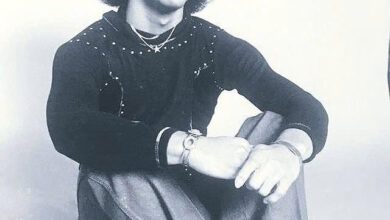A Cultural Impact: Why “Purple Rain” Remains a Touchstone for Emotional Expression in Music
OPINION: This article may contain commentary which reflects the author's opinion.
Few albums have left an indelible mark on both the music industry and the hearts of listeners like Purple Rain by Prince. Released in 1984, the album transcended musical genres, blending rock, pop, R&B, and even gospel, becoming an iconic soundtrack to a generation. Yet, what truly cements Purple Rain as a cultural touchstone is not just its eclectic sound or Prince’s dazzling guitar solos, but its raw emotional depth. It stands as a testament to the power of vulnerability in music, touching upon universal human experiences like love, loss, and redemption. This emotional resonance has allowed Purple Rain to endure over the decades, maintaining its relevance in a world where authenticity in music is often sought but rarely achieved.
The Heartbeat of Purple Rain: Vulnerability and Redemption
At its core, Purple Rain is a deeply personal reflection of Prince’s struggles and triumphs. The title track alone, a nearly nine-minute epic, encapsulates the emotional journey that would define both the album and its legacy. With lyrics like “I never meant to cause you any sorrow, I never meant to cause you any pain,” Prince captured the essence of human regret and reconciliation. It’s this honesty that resonates with listeners on an emotional level, transcending time and generational divides. The song’s haunting combination of melancholic lyrics and triumphant guitar solos creates a cathartic experience that allows listeners to confront their own emotions, whether it’s heartbreak, longing, or personal redemption.
What makes Purple Rain stand apart is how it juxtaposes personal pain with communal joy. In the film, the live performance of the song becomes a moment of reconciliation—not just for the characters but for the audience. It’s a shared moment of release, where music acts as both a mirror and a balm for the human experience.
Blurring Genre Lines: A Universal Appeal
One of the reasons Purple Rain has had such lasting power is its ability to appeal to a wide audience, crossing the rigid boundaries of musical genres. Prince seamlessly blended rock with R&B, pop with soul, and even elements of gospel, creating a sound that was as complex as the emotions it conveyed. Songs like “When Doves Cry” and “Let’s Go Crazy” showcase Prince’s ability to channel both raw emotion and exuberant joy, allowing listeners to move between emotional highs and lows within the span of a single album.
This genre-fluidity reflected Prince’s own refusal to be boxed in artistically, and it gave Purple Rain a universality that resonates with listeners across various musical tastes. Whether you’re drawn to the fiery guitar riffs, the sultry synths, or the heart-wrenching ballads, there’s something in Purple Rain that speaks to a diverse audience, making it more than just an album—it’s an emotional experience.
A Visual and Sonic Experience
The cultural impact of Purple Rain is not limited to its sound; the accompanying film, also titled Purple Rain, added a visual layer to the album’s emotional depth. The semi-autobiographical storyline of the film mirrors Prince’s own life, creating a narrative of struggle, self-discovery, and triumph. For many, the film and album are inseparable, each enhancing the emotional weight of the other.
In a way, Purple Rain is one of the first modern albums to integrate visual storytelling with music in a meaningful way. Prince’s on-screen performance, full of flamboyance and passion, showed audiences that emotional expression in music isn’t just about the lyrics or melodies—it’s about embodying the feelings in a way that is palpable, almost tangible.
A Lasting Legacy in Emotional Expression
What makes Purple Rain an enduring touchstone for emotional expression in music is its sincerity. Prince didn’t shy away from exploring the darker, messier sides of human emotion, and in doing so, he created a space for listeners to confront their own feelings. In an era where music is often polished and manufactured, Purple Rain stands as a reminder of the power of authenticity in art.
Moreover, its influence is visible in artists across genres who have cited Prince and Purple Rain as pivotal in their own musical journeys. The album set a standard for emotional honesty in music, and its echoes can be heard in the works of modern icons like Beyoncé, The Weeknd, and even Lady Gaga—artists who are unafraid to blur genres while wearing their emotional hearts on their sleeves.
Conclusion: The Enduring Impact of Purple Rain
Purple Rain remains more than just a classic album; it’s a cultural monument to the power of music as emotional expression. Prince’s fearless exploration of vulnerability, heartbreak, and triumph continues to inspire new generations of musicians and listeners alike. The album’s ability to transcend genre and time underscores its importance not just in the history of music, but in the ongoing conversation about how music can speak to the depths of the human soul. As long as there are listeners seeking an emotional connection in music, Purple Rain will continue to be a guiding light.



